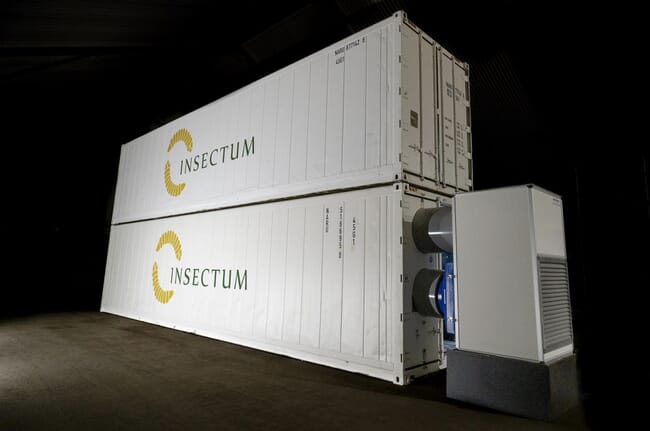
© Margit Givskov
With its solution for the production of black soldier fly larvae, Danish startup Insectum hopes to meet the growing global demand for protein and fat for food, pet food, aquaculture and agriculture feeds, as well as for various technical products, including fertilisers, while simultaneously utilising organic by- and waste products.
Black soldier fly larvae grow rapidly, are rich in protein and fat, and can be fed with organic by- and waste products from the food industry, food waste, livestock manure, and other by-products from agriculture. After 12 days, the larvae are harvested and processed into protein and fat, which can be used as ingredients in feed blends and food. The manure of the larvae - frass - is also a great natural fertiliser.
"Our modular solution is simple, quick to build, and easy to transport. We have secured the system with patents in major markets such as the USA, China, India, and the EU, as well as in several other countries in Asia, the Middle East, Africa, and South America, and we are now preparing to introduce our system in a franchise model," stated Kristian Scheef Madsen, board member of Insectum, in a press release.
System design
The modules are produced by partners in Denmark and Germany and delivered by ship, train, or truck as plug-and-play units, which are assembled into production facilities of the desired size close to the waste products that the insects will be fed. The production facilities are established outdoors on a flat and solid surface. There is no need to construct buildings. If the feed basis for a facility disappears, the entire set-up can be loaded onto trucks and moved to another location with suitable residual streams.
In addition to the towers, process equipment for feeding and processing the fresh larvae is needed, and this is also incorporated into separate modules.
Insectum's production system is based on tested technology that’s been integrated into recycled insulated shipping containers. A production unit, a tower, consists of two modules, a "nursery" and a "breeding unit," which are connected on top of each other. The larvae spend six days in each module.
The startup claims that the system is extremely flexible and mobile, allowing for the setup and scaling of production facilities in the immediate vicinity of the residual streams that the larvae will be fed. Assuming a production facility with a production volume of 100 tonnes of larvae per day, Insectum says that its technology could reduce establishment costs by up to 75 percent compared to industry standards.




